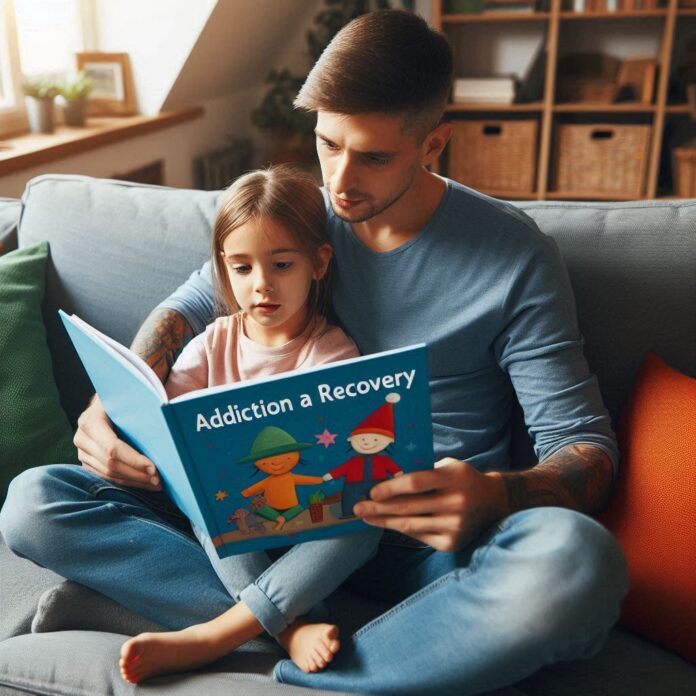Why Talking to Kids About Addiction Matters
In today’s world, children are exposed to various influences, both good and bad, at a young age. The prevalence of substance abuse in media, social circles, and sometimes even within families makes it essential to educate kids about addiction early on. A proactive conversation about addiction can help children understand the dangers of drugs and alcohol, empowering them to make informed choices as they grow.
Open communication is key to fostering trust and understanding. As a parent or guardian, you play a vital role in shaping your child’s attitude toward substances and helping them avoid the pitfalls of addiction.
Start Early with Age-Appropriate Conversations
It’s never too early to begin discussions about healthy habits and choices. Tailor your approach based on your child’s age and level of understanding. For younger children, you might use simple language to explain that some substances, like certain medicines, are helpful only when used correctly and under adult supervision.
As children grow older, you can delve deeper into the risks and consequences of substance abuse. Discuss how addiction can harm the body, mind, and relationships, and encourage questions to ensure they grasp the topic.
Be Honest and Use Real-Life Examples
Honesty is crucial when discussing addiction with kids. Avoid sugarcoating the topic or providing inaccurate information. Share real-life examples of how addiction has negatively affected people’s lives. These stories can be from the news, your community, or personal experiences (if appropriate).
Highlight the importance of seeking help for addiction and mention resources such as a rehabilitation centre in Delhi where individuals can receive professional support to overcome substance abuse.
Address Peer Pressure
One of the biggest challenges children and teenagers face is peer pressure. Teach your child how to handle situations where they might be encouraged to try alcohol or drugs. Role-play scenarios where they practice saying “no” confidently and discuss the importance of standing firm in their values.
Explain that true friends will respect their decisions and won’t pressure them into risky behaviors. Reinforce that it’s okay to walk away from uncomfortable situations and prioritize their well-being.
Emphasize Healthy Coping Mechanisms
Many people turn to substances as a way to cope with stress, anxiety, or emotional pain. Teach your child about healthy alternatives for managing emotions, such as talking to someone they trust, engaging in hobbies, practicing mindfulness, or seeking professional help when needed.
By instilling these habits early, you reduce the likelihood of your child using drugs or alcohol as a coping mechanism later in life.
Create a Judgment-Free Zone
Kids are more likely to open up about their thoughts and experiences when they feel safe and heard. Foster an environment where your child knows they can discuss sensitive topics without fear of judgment or punishment.
If your child admits to being curious about substances or feeling peer pressure, respond calmly and with empathy. Use the opportunity to guide them toward making better choices rather than reacting with anger or disappointment.
Highlight the Importance of Support Systems
Explain to your child that addiction is a complex issue that often requires help from family, friends, and professionals. Talk about how support systems, including counseling and treatment facilities like a rehabilitation centre in Delhi, play a crucial role in helping individuals recover and rebuild their lives.
Let them know that seeking help is a sign of strength, not weakness, and emphasize the importance of being there for loved ones who may be struggling with addiction.
Stay Informed and Updated
To have meaningful conversations with your child, it’s essential to stay informed about the latest trends and issues surrounding addiction. For example, vaping, prescription drug misuse, and online access to illicit substances are growing concerns.
By staying updated, you’ll be better equipped to address these topics and provide relevant guidance. You can also use current events as a starting point for discussions about the consequences of substance abuse and the importance of making responsible choices.
Encourage a Drug-Free Lifestyle
Promote a lifestyle that prioritizes health, wellness, and positive relationships. Encourage your child to participate in extracurricular activities, sports, or volunteer work that keeps them engaged and away from negative influences.
Remind them of the long-term benefits of staying substance-free, such as improved physical and mental health, better academic and career opportunities, and stronger personal relationships.
When Professional Help Is Needed
Despite your best efforts, there may be situations where your child or someone in your family is affected by addiction. In such cases, it’s crucial to act quickly and seek professional help. Treatment facilities, such as a rehabilitation centre in Delhi, provide comprehensive support for individuals and families dealing with addiction.
These centers offer counseling, therapy, and medical care to address the root causes of substance abuse and pave the way for recovery. By involving professionals, you ensure that your loved one receives the guidance they need to regain control of their life.
Final Thoughts
Talking to kids about addiction is an ongoing process that requires patience, honesty, and empathy. By fostering open communication and providing accurate information, you can help your child navigate the challenges of growing up in a world where addiction is a reality.
Empower your child to make healthy choices, resist peer pressure, and seek help when needed. Remember, the foundation you lay today will shape their attitudes and decisions for years to come. If addiction ever becomes a concern, don’t hesitate to reach out to resources like a rehab centre in Delhi to ensure the best possible outcomes.
